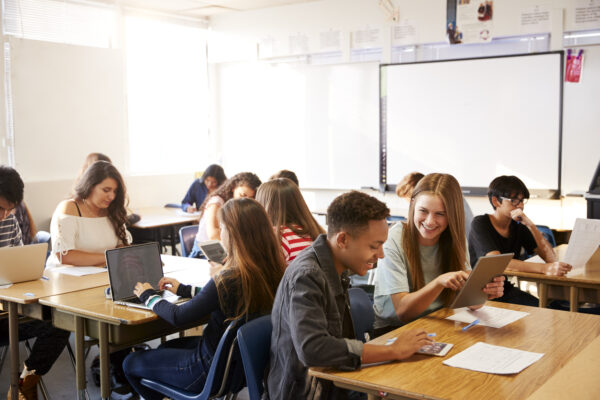The Texas Education Agency should reconsider its decision to restart standardized testing in the upcoming school year in light of growing COVID-19 cases and looming budget cuts. Rather than restart standardized testing, now is the time to create a more innovative and cost-effective testing system.
TEA canceled standardized testing for the past school year due to the pandemic but chose not to skip a second year of testing despite national health concerns. Without multiple years of student achievement data, the state is unable to track student growth from year to year, which is a key accountability measure. There is logic to restarting testing, but the system is not in the best interest of students, teachers or families.
As educational researchers and former school administrators, we recognize the inherent value of testing and maintaining a system of accountability. If used appropriately, standardized testing data can help the state support and improve struggling districts and schools. Yet, the current testing and accountability system in Texas is costly and inefficient, and it has not led to narrowing achievement gaps.
Texas is not unique in its ineffective system of accountability. Researchers consistently report that achievement gaps at the secondary level have not been closed since the advent of the nation’s standardized testing and accountability law, the No Child Left Behind Act.
The state needs to rethink its approach. Budget cuts, learning loss due to extended school closures, and teacher burnout dictate that the state should dramatically reduce testing.
Texas currently spends millions of dollars a year on an anxiety-provoking testing process. Testing kits frequently show up in classrooms with Ziploc bags because students often throw up on tests due to testing anxiety, but those tests must still be submitted. These condition should not be the type of conditions that should be reproduced for students once schools reopen.
One solution is drastically cutting back on the number of students tested each year. The National Assessment of Educational Progress assesses a representative sample of students rather than an entire student population. This allows the U.S. Department of Education to predict how each district, school and student would perform. Only testing students from select schools and districts will limit costs and testing anxiety.
A standardized testing policy that limits testing to only randomly selected students and schools will also save the state significant resources that extend beyond testing costs. Students currently lose approximately 10 instructional days to standardized testing and test preparation. This lost instructional time is an added expense on an already financially burdened system. A reduction on time spent on testing will result in additional time for teachers to instruct and intervene with their struggling students.
Limiting testing during a pandemic is also a prudent step with obvious public health benefits. The reduced pressure to prepare for a high-stakes assessment will decrease the likelihood that sick teachers and students will feel compelled to come to school.
Educators are vital to improving student outcomes, but they often feel stressed about standardized testing, which can only heighten burnout and turnover amid the pandemic. Now is not the time for schools to increase stress, especially because many veteran principals and teachers are considering retiring due to their concerns with COVID-19. Texas needs its most experienced educators and leaders to stay at work and help guide schools through these difficult times.
Texas policymakers need to ensure education dollars go to creating healthy, safe and supportive schools. Testing cannot be a priority at this moment, and finite resources cannot be squandered on an imperfect testing system. Every educational dollar needs to be used as efficiently as possible to ensure students thrive academically and socially, and testing is not part of that equation.
David DeMatthews is an associate professor of educational leadership and policy in the College of Education at The University of Texas at Austin.
Lebon Daniel James III is a Ph.D. candidate in the educational policy and planning program in the College of Education at The University of Texas at Austin.
A version of this op-ed appeared in the San Antonio Express News, Abilene Reporter News and the Austin American Statesman.




